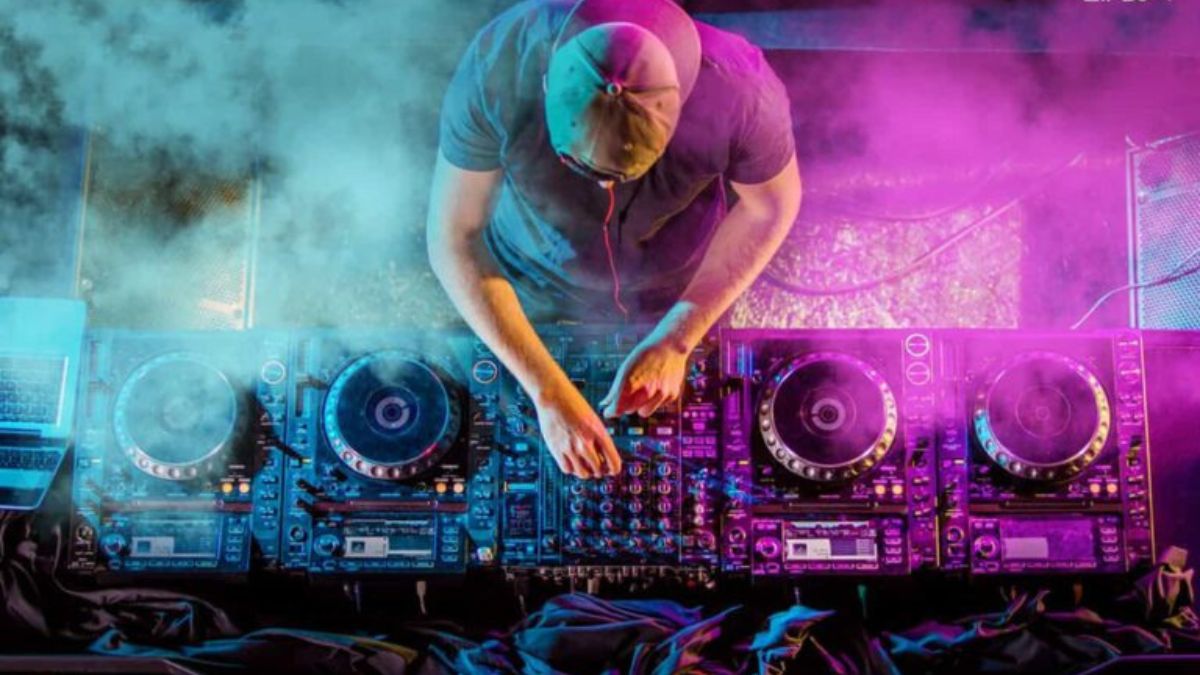Becoming a DJ is an exciting career path that combines a passion for music with technical skills and creativity. Whether you aim to perform at clubs, festivals, or online platforms, this comprehensive guide will help you understand how to become a DJ and build a successful career in the industry.
What Is a DJ?
A DJ, or Disc Jockey, is a music professional who selects, mixes, and plays tracks for an audience. DJs work in various settings including clubs, radio stations, events, and digital platforms. Their goal is to create a seamless musical experience by blending songs to maintain energy and engagement.
Step 1: Understand Different Types of DJs
- Club DJs: Perform live at clubs and venues, mixing tracks to keep the audience dancing.
- Radio DJs: Curate playlists and host shows on radio stations.
- Mobile DJs: Provide music for weddings, parties, and corporate events.
- Turntablists: Use vinyl turntables for creative scratching and beat juggling.
- Producer-DJs: Create original music and remixes to perform live.
Knowing which DJ style suits your interests will guide your learning and equipment choices.
Step 2: Build a Diverse Music Library
A well-curated music library is essential for any DJ. To build yours:
- Explore multiple genres such as electronic, hip-hop, house, and techno.
- Purchase or download music legally from trusted platforms like Beatport, iTunes, or Bandcamp.
- Organize your tracks using DJ software, categorizing by BPM, genre, or mood.
- Keep your collection updated with new releases and classic hits.
Step 3: Invest in Essential DJ Equipment
Starting with the right gear is crucial. For beginners, consider:
- DJ Controller: A combined mixer and decks unit; popular models include Pioneer DDJ-400 and Numark Mixtrack Pro.
- Laptop: To run DJ software such as Serato DJ, Rekordbox, or Traktor.
- Headphones: High-quality headphones for cueing and beatmatching.
- Speakers/Monitors: Good speakers or monitors to practice mixing at home.
Step 4: Learn Core DJ Techniques
Mastering key DJ skills will improve your performance:
- Beatmatching: Syncing the tempo of two tracks manually or with software.
- Phrasing: Mixing tracks at the right musical phrases for smooth transitions.
- EQing: Balancing bass, mid, and treble frequencies for a clean mix.
- Mixing Techniques: Using crossfading, loops, effects, and scratching.
- Reading the Crowd: Adjusting your set to fit the audience’s mood and energy.
Step 5: Practice Regularly
Consistent practice helps develop your skills:
- Set aside dedicated practice time daily or weekly.
- Record your mixes to evaluate your progress.
- Experiment with different genres and mixing styles.
- Utilize online tutorials and forums to learn new techniques.
Step 6: Create and Share Your Mixes
Building an online presence is important:
- Record and edit your DJ sets with software like Audacity or Ableton Live.
- Upload your mixes to platforms such as SoundCloud, Mixcloud, and YouTube.
- Engage with your audience by responding to comments and sharing updates.
- Consider live streaming your performances on Twitch, Instagram Live, or Facebook.
READ MORE: Best Online Music Lessons 2025 – Learn Instruments & Vocals from Home
Step 7: Network and Find Gigs
Networking can open doors to performance opportunities:
- Attend local DJ events, music festivals, and industry meetups.
- Collaborate with other DJs, producers, and event organizers.
- Start performing at small events like house parties or local venues.
- Prepare a professional press kit with your bio, photos, and sample mixes.
Step 8: Develop Your Personal Brand
A strong brand helps differentiate you:
- Choose a memorable and unique DJ name.
- Create a professional logo and consistent social media branding.
- Maintain active profiles on Instagram, Facebook, TikTok, and LinkedIn.
- Share content such as behind-the-scenes footage, event updates, and new mixes.
Step 9: Stay Updated and Evolve
The music industry evolves rapidly:
- Keep up with the latest music trends and technology updates.
- Learn music production to create your own tracks and remixes.
- Take advanced courses or workshops to enhance your skills.
- Seek feedback to continually improve your craft.
Step 10: Consider Music Production
Producing music can complement your DJ career:
- Use software like Ableton Live, FL Studio, or Logic Pro.
- Learn music theory, sound design, and mixing techniques.
- Release your tracks on platforms like Spotify, Apple Music, and Beatport.
- Incorporate your original productions into live performances.
Conclusion
Learning how to become a DJ involves dedication, practice, and continuous learning. By following this step-by-step guide, building your skills, and promoting your unique style, you can establish a successful career as a DJ and captivate audiences around the world.









